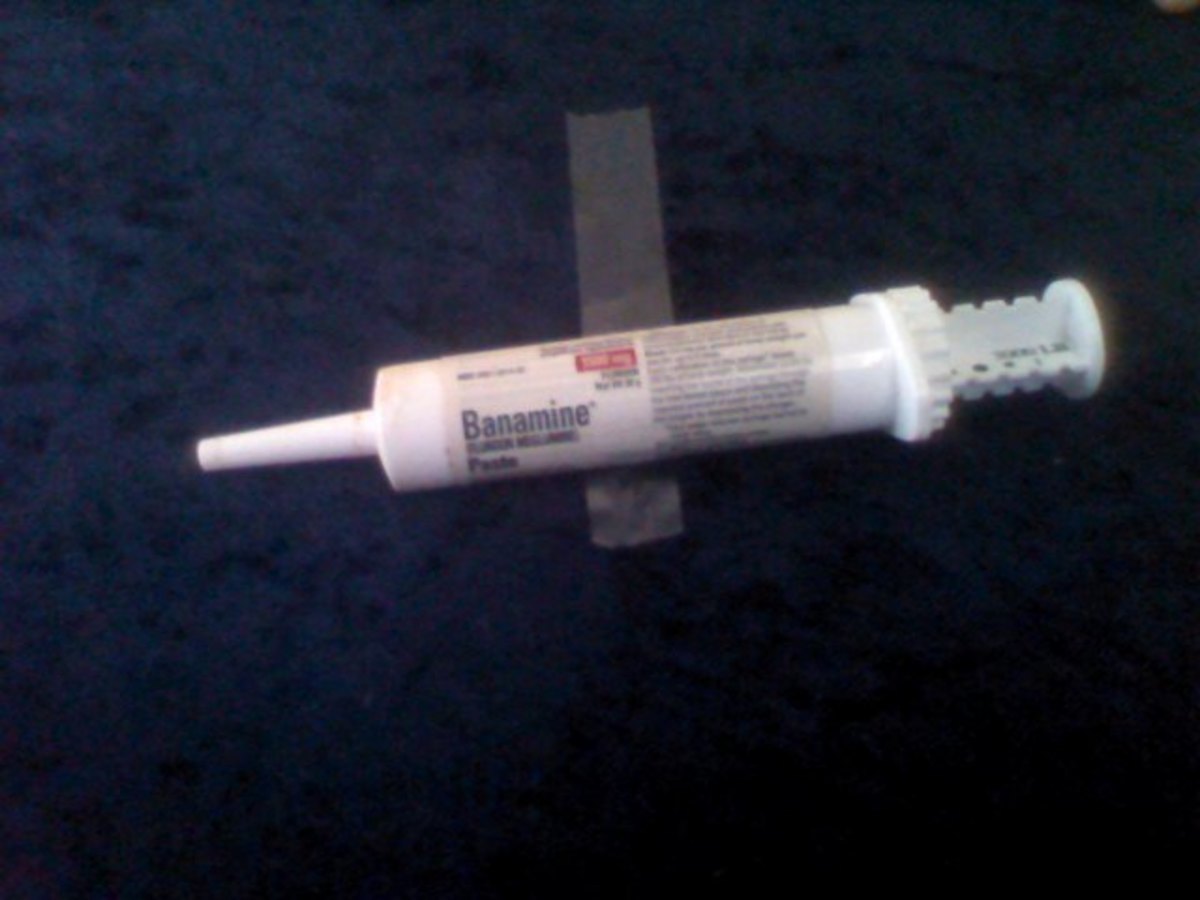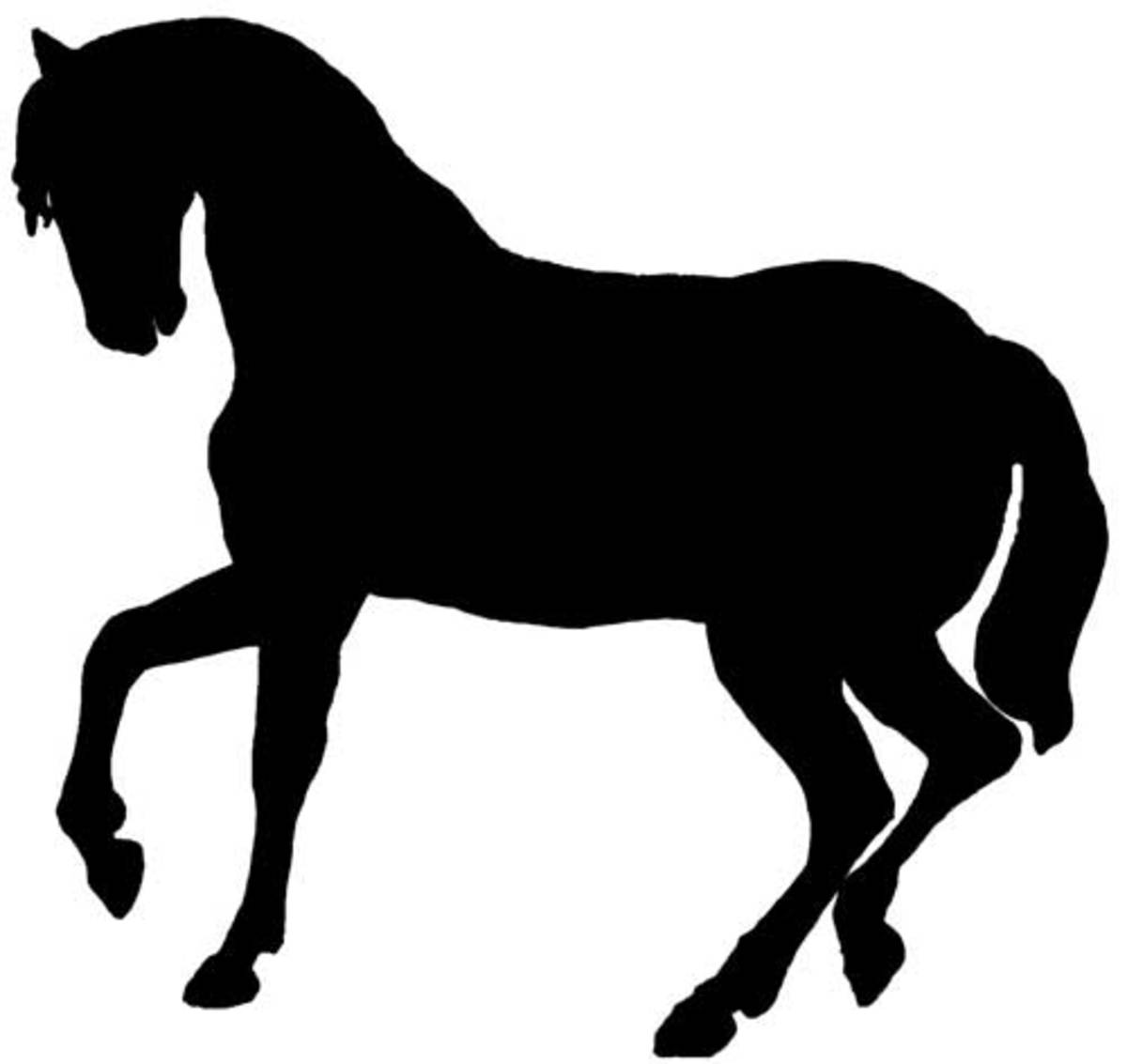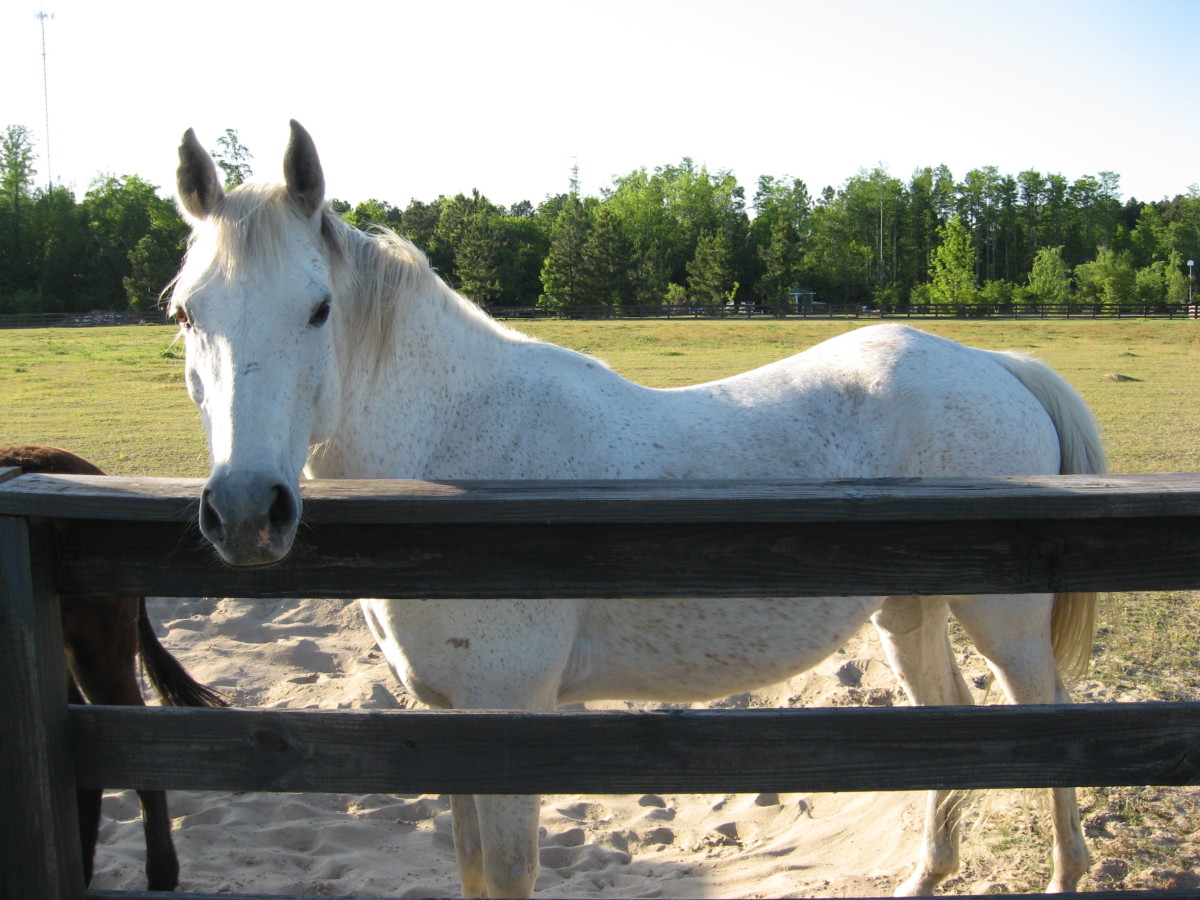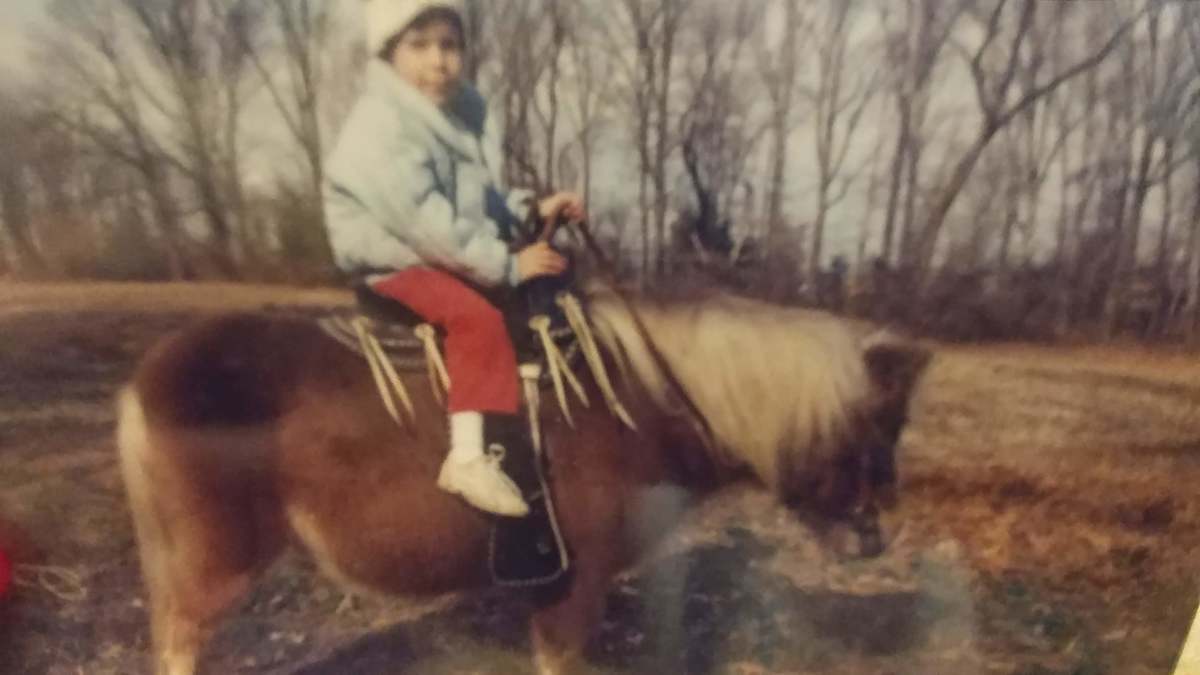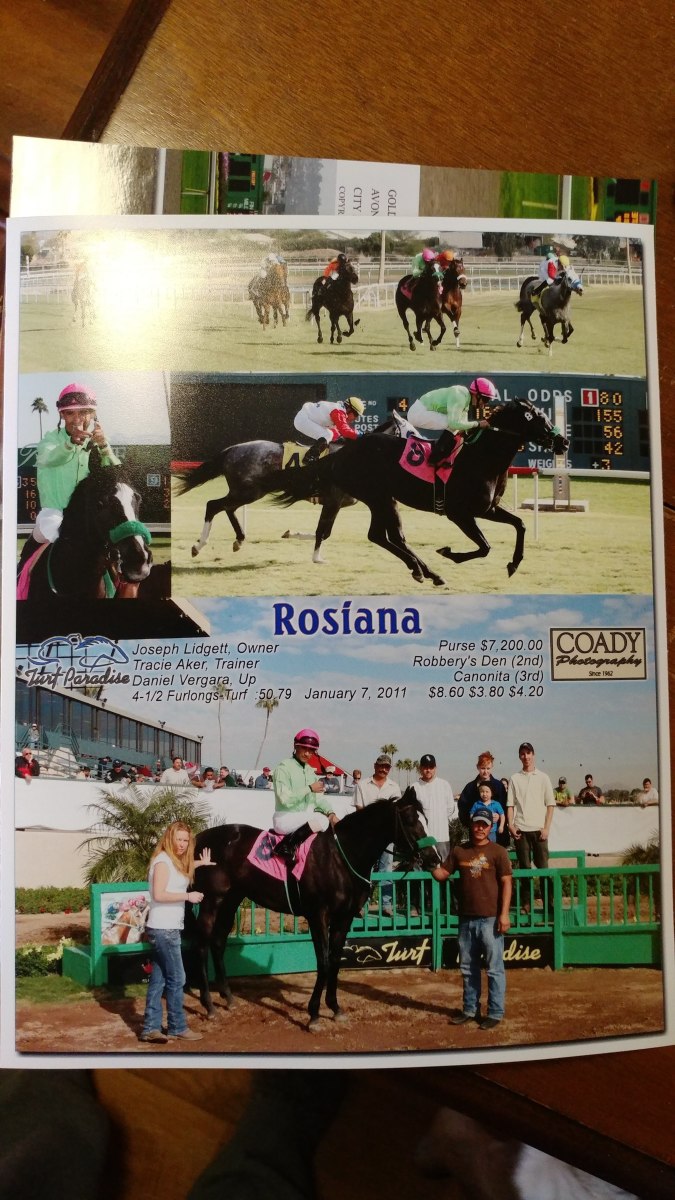Horse Disease Focus - Colic
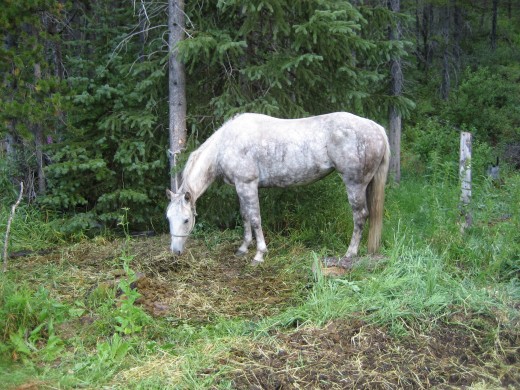
What is colic?
Colic is not technically a disease - it is a symptom. When we say a horse has colic or is 'colicking', we mean that the horse is experiencing significant abdominal pain.
Colic is most commonly caused by problems in the digestive system, usually issues with the gut. Ulcers can also cause similar symptoms. Some mares experience colic-like symptoms when in heat (there are supplements that can cause this problem). A mare in early labor may also act in a very similar manner to a horse suffering from colic.
What are the symptoms?
So, how do you know if your horse is experiencing abdominal pain.
Horses with colic become restless. A characteristic is the horse bringing its head around to look at its own sides or belly. Temperature and heart rate will be elevated.
If it is more severe, the horse's respiration will speed up. He or she may kick upwards towards his or her own belly or paw the ground. Some horses with colic will roll violently in an attempt to relieve the pain. The horse may also break out into a sweat. It may lie down and get up repeatedly, as if unable to get comfortable, or move into the urination pose without urinating (note that many mares will urinate frequently or move into the pose and produce no or very little urine when in heat).
The horse may refuse to eat and may produce less manure than usual...or none. If a horse is showing colic signs and not defecating, it is a sign of very severe colic.
What causes it?
Most of the time, if a horse is in abdominal pain then something is wrong in the hind gut.
Horses are hind gut fermenters. They hold their high cellulose food in their gut for an extended period of time. (This is why horses can be safely given alcohol - between this and their body mass it is pretty much impossible to get a horse drunk). They have a tremendous amount of large and small intestine, even for their size.
Horses also are unable to either vomit or burp. One of the most common causes of colic is nothing more or less than gas. Between the fact that horses produce more gas than we do, the size of their digestive system and the fact that it can only escape one way, if a horse gets gas it's a lot more painful than if a human does. Gas colic is unpleasant for the animal and worrying for the owner, but is not serious.
Sand colic is unique to areas where the soil is unusually fine or sandy. This causes horses to ingest large quantities of sand when they graze. There is absolutely no way to stop horses from intaking sand. However, sand colic can be easily prevented. The best way is to feed a special supplement that contains psyllium, which helps sand move through the intestinal tract more quickly, preventing it from building up. Any horses that are kept in areas with unusually fine soil should be fed psyllium.
In the bad old days, verminous colic was the most common form. Horses that are wormed properly on a correct schedule, preferably rotating wormers, will not get verminous colic. However, it is still seen in neglected horses and is a common problem when well-meaning rescuers take in a horse that has been neglected and give it a massive dose of wormer. This causes a huge die-off of parasites in the gut or stomach that then become impacted when the horse tries to pass them. Neglected horses should be wormed carefully and not over dosed.
Both sand and verminous colic cause impaction - a block in the intestine. Impaction can also be caused by a reduction in the ability of the intestine to move food through. In many cases, though, the cause of an impaction is not known. Statistics indicate an increased risk in horses between two and ten, but very old horses may also be more prone to colic.
A 'twisted gut' occurs when a horse's intestine becomes looped around itself. It used to be believed that this was exclusively caused by allowing a horse to roll when it had colic. However, violent rolling appears to be a symptom of a severe intestinal malformation, not a cause. (A horse with colic should still not be allowed to roll violently, however, as it is very likely to injure itself and is as likely to make the impaction worse as free it).
Treatment
Treatment depends on the severity of the colic.
Some horses experience gas colic if their diet changes. This can result in a horse that, without fail, colics every single spring - I used to know one. If you have a horse like this, treatment is likely to consist of administering a painkiller and leaving the horse alone until it gets better. The same goes for mares who colic when in heat. This kind of colic is 'increased activity colic' and is painful, but not serious.
However, in pretty much every other case, colic is an emergency and you should contact the vet immediately. Some vets may recommend that you administer bute or banamine immediately. Others prefer that you do not medicate the horse as it can change the symptom profile. Always discuss things with your vet and always make sure the vet knows that you gave the horse a painkiller. Do not administer a painkiller that contains atropine, as it makes colic worse.
The traditional treatment for colic was to hand walk the horse constantly. It is now known that this tends to make the situation worse. If the horse is not trying to roll, then it may be better off just allowed to lie in its stall quietly. Hand walking for short periods...a few minutes a time then resting the animal...can be helpful. Under no circumstances should you ride a horse that is colicking or chase it around to make it run. A horse that is showing symptoms of severe colic should not be left unattended - make sure somebody stays with the animal until the vet gets there.
The vet, when he or she gets there, will assess the horse. The most likely treatment is painkillers combined with fluids, administered either through a stomach tube or an IV. An impaction can sometimes be cleared by over-hydrating the intestinal tract and horses in severe colic often become dehydrated due to excessive sweating. The vet will do a rectal exam to attempt to locate an impaction. If they find one, they will give the horse a laxative. Some vets also use mineral oil, given through a stomach tube. Fluids become even more important if laxatives are being used.
In extreme cases, surgery to remove part of the intestines (resection surgery) may be indicated. Colic surgery is expensive and there is always a risk that the horse will die on the table or in the recovery room. It is worth considering whether surgery is an option or whether it might be better to euthanize the animal. With very old horses, the chance of surviving colic surgery becomes very slim.
Prevention
The best 'treatment' for colic is to prevent it from happening in the first place. Here are some tips for reducing the risk:
1. If your horse is kept on sand, feed a psyllium supplement.
2. Feed plenty of good quality forage. Try to avoid only feeding once or twice a day. Horses are not designed to eat big meals then fast, like we are.
3. Turn out as much as possible. Horses should get at least a few hours of turnout a day. (At some urban barns this may be impossible and some parts of the country are notorious for barns with turnout being prohibitive for the average horse owner).
4. Exercise regularly. If you can only ride on weekends, it becomes even more important to turn a horse out during the week.
5. If a horse is on stall rest, try to handwalk it two or three times a day. This will also lower the risk of stable vices developing.
6. Never leave a horse without water. If on long trail rides, then give the horse a chance to drink every time you come across an easily accessible stream. Horses need eight to ten gallons of water a day, depending on size and exertion, and dehydration is a major cause of colic. (Mules and donkeys, on the other hand, can manage without water all day without a problem...so those 'poor' seaside donkeys who are out all day without being watered are quite fine). If your horses are turned out during the winter, leave a plastic ball floating in the water trough...this will prevent the trough from freezing completely. Break up the ice that does form every time you check on the horse.
7. To prevent heat colic, give an overheated horse small quantities of warm water or a bran mash, rather than letting him drink large quantities of cold water.
8. Make all changes of feed gradually. Consider reducing grazing time in the spring so the horse is exposed to less of the sudden increase in sugars associated with this time of year.
9. If you have a horse that has colicked before, he or she is more likely to colic again. You might want to consider adding an enzyme, yeast or ammonia supplement to their diet.


